This week marked 10 years since Doctor Who showrunner Steven Moffat announced the casting of Jenna Coleman as the companion Clara Oswald at a London press conference.
Clara is an important character in the history of Doctor Who for a number of reasons. She was the serving companion for the show’s 50th anniversary event, “The Day of the Doctor,” and bridged the tenures of Matt Smith and Peter Capaldi. Coleman was one of the longest-serving actors on the show, particularly of the revival era. This has been a source of some controversy, with some fans protesting that she essentially hijacked the show and turned it into “Clara Who.”
Nonetheless, coming out of the show’s celebratory anniversary, Steven Moffat and Jenna Coleman used Clara Oswald to redefine the most central relationship in Doctor Who: the dynamic between Doctor and companion. In doing so, Clara pushed Doctor Who beyond its comfort zone and into new territory.
Doctor Who is a show that has continuously reinvented itself over its decades on the air. At the heart of the premise is the idea of the Doctor as a wandering adventurer who travels through time and space in their TARDIS. The Doctor inevitably sweeps up other people to travel with them, referred to as “companions.” The show cycles through lead actors by having the Doctor “regenerate,” changing their face and personality. It cycles through companions by having them leave the TARDIS.
The Doctor can travel with multiple companions, though rarely for extended stretches since the Third Doctor (Jon Pertwee) debuted in January 1970. The Fifth (Peter Davison) and Eleventh (Matt Smith) Doctors would often travel with several companions at once. Later versions like the Ninth (Christopher Eccleston) or Twelfth (Peter Capaldi) Doctors would periodically take on secondary companions, but they were often in supporting roles to the primary companion.
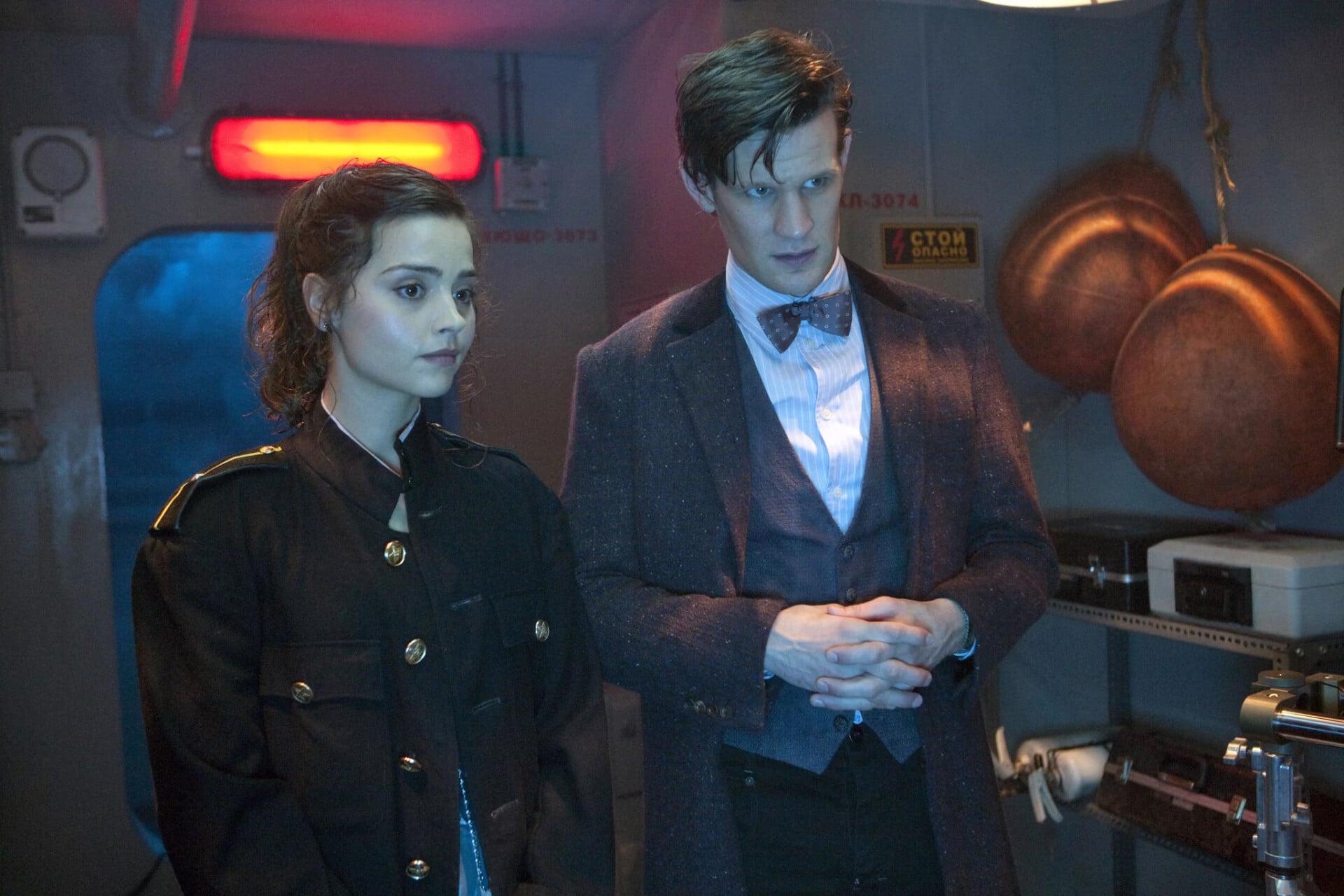
The dynamic was also often explicitly gendered. The show’s longest serving companion, Jamie McCrimmon (Frazer Hines) is male, but most of the companions since January 1970 have been female. Similarly, while the Thirteenth Doctor (Jodie Whittaker) is a woman, the 12 previous series leads were all men. As a result, Doctor Who is often a show about an older man touring time and space with his younger female companion, who is often rotated in and out with little ceremony.
The role of companion has often been a thankless one. Explaining the sudden departure of scientist Liz Shaw (Carolyn John) after a single season, producer Barry Letts argued that she was too qualified to fill the companion’s role of asking, “Doctor, what’s all this about?” Actor Janet Fielding remembers producer John Nathan-Turner telling her that she was “there for the dads.” It was customary for the show to write out companions like Jo Grant (Katy Manning) or Leela (Louise Jameson) by marrying them off.
This trend continued into the revival era. Moffat’s predecessor, Russell T. Davies, would write out companions like Rose Tyler (Billie Piper), Martha Jones (Freema Agyeman), or Donna Noble (Catherine Tate) by pairing them up with love interests. There was a clear sense that this sort of adventuring was only appropriate for a woman of a certain age and that eventually these companions would have to settle down and accept mundane life.
Moffat would pointedly subvert this dynamic with his first companion, Amy Pond (Karen Gillan). Amy is allowed to have both a happy married life with her husband Rory (Arthur Darvill) and adventures with the Eleventh Doctor, a point underscored by the false choice presented to the character in “Amy’s Choice.” Moffat was consistently interested in pushing beyond the established boundaries of Doctor Who, to prove that the show could change and evolve. Clara Oswald is part of that.
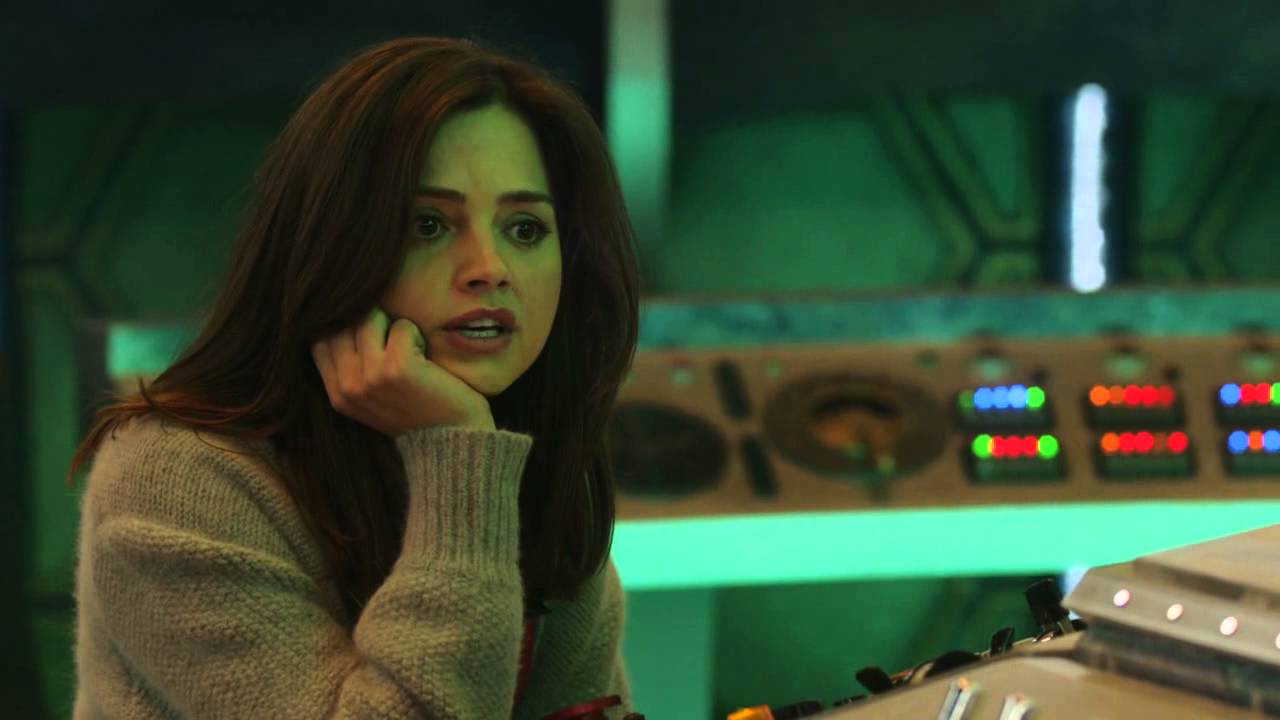
Clara was introduced in her first half-season as a broadly drawn companion. In many ways, she was the archetypal companion. In the show’s seventh season finale, Clara was scattered through time, becoming a companion to various previous iterations of the Doctor. Befitting the 50th anniversary, Clara was introduced not so much as a companion to the Doctor, but as the idea of a companion to the Doctor, “everywhere all at once, running every second just to find him.”
If her stint with the Eleventh Doctor established Clara as the ideal of a companion, her time with the Twelfth Doctor pushed beyond that. Clara’s tenure with the Twelfth Doctor is notable for a series of “false exits,” moments when it seemed like the character had run her course and would leave the show. Some fans were critical of the character’s constant returns. To be fair, at least two of these were actual potential departure points, with Coleman deciding twice to extend her run on the series.
However, these aborted departure arcs all exist to serve a greater purpose. Each of Clara’s potential exits reflects a certain archetypal companion departure, playing out a version of the show’s historical ways of bidding farewell to its support players. During her two seasons with the Twelfth Doctor, the show cycles through a number of familiar and possible endings to Clara’s story, endings that have been used for previous characters in her role. At each point, the show refuses.
In “Kill the Moon,” Clara reaches a breaking point with the Doctor after he violates her trust and subjects her to emotional trauma. “You can clear off,” she goads him, quite rightfully. “Get back in your lonely bloody TARDIS and you don’t come back.” It recalls Martha’s departure in “The Last of the Time Lords,” realizing how toxic the power imbalance of the relationship is and “getting out” because the Doctor cannot see how bad the situation has become.
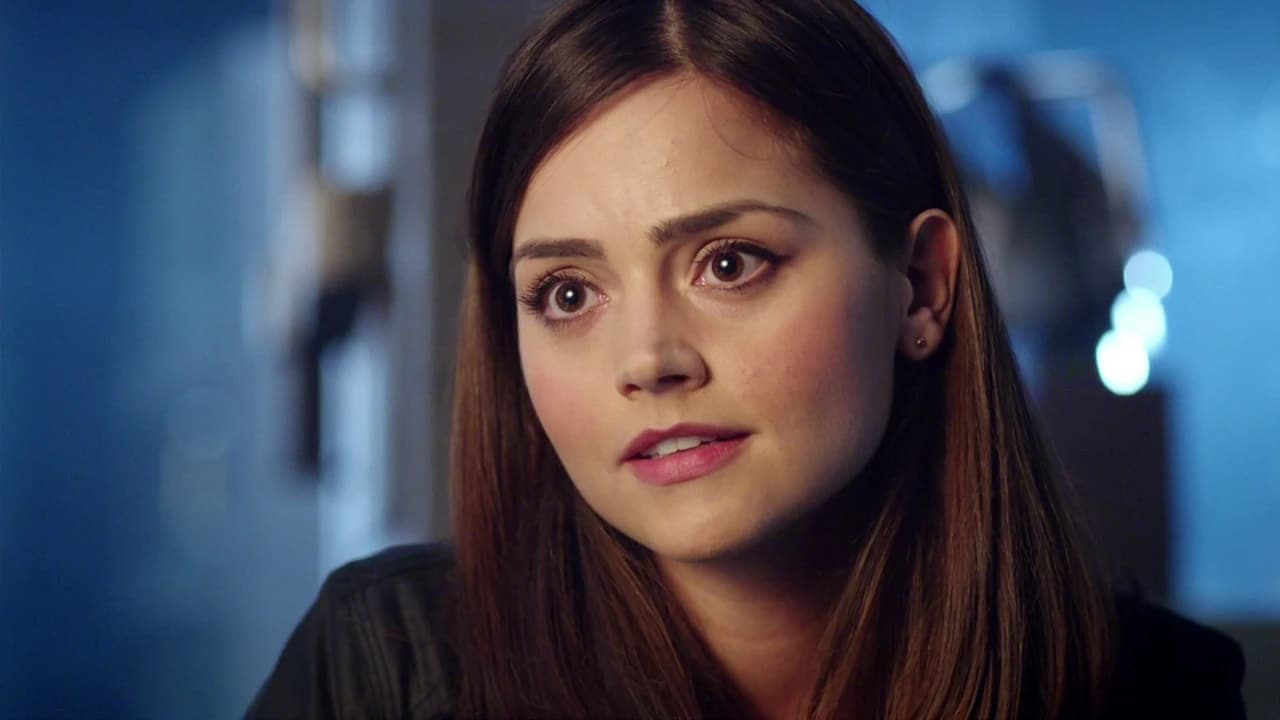
In “Death in Heaven,” the Doctor and Clara part ways based on two misunderstandings. The Doctor assumes that Clara is leaving to be with Danny Pink (Samuel Anderson), evoking classic companions like Jo Grant or Leela. Clara believes that the Doctor is returning to his home planet of Gallifrey, recalling the decision that marked the end of the Fourth Doctor’s (Tom Baker) adventures with Sarah Jane Smith (Lis Sladen) in “The Hand of Fear.”
In “Last Christmas,” the Doctor is confronted with the possibility that he might have accidentally skipped over Clara’s life, joining her in old age and missing so much time with her. It’s a melancholy echo of the way in which the Tenth Doctor (David Tennant) acknowledged his own abandonment of Sarah Jane Smith, the fact that he “didn’t come back.” It is similar to how the Eleventh Doctor ended up drifting away and eventually separating from both Rory and Amy.
In “Face the Raven,” Clara is killed off. She is punished for stepping into the Doctor’s narrative role, arrogantly tampering with forces she cannot understand. “I let you get reckless,” the Doctor chides himself. “Why?” Clara responds. “Why shouldn’t I be so reckless? You’re reckless all the bloody time. Why can’t I be like you?” This is the red line for companions. She forgot her place. She forgot that this wasn’t her show. Like Adric (Matthew Waterhouse) or (sort of) Rose, she had to be humbled.
The show rejects each of these possible endings. Clara continues to travel with the Doctor after “Kill the Moon,” renegotiating their relationship to one of equals. Clara even poses as the Doctor two episodes later, in “Flatline.” In “Death in Heaven,” Clara warns the Cybermen that she is the Doctor. More than that, the show bends to her. Jenna Coleman becomes the first woman to get top billing on Doctor Who, her eyes replacing Peter Capaldi’s in the episode’s opening credits.
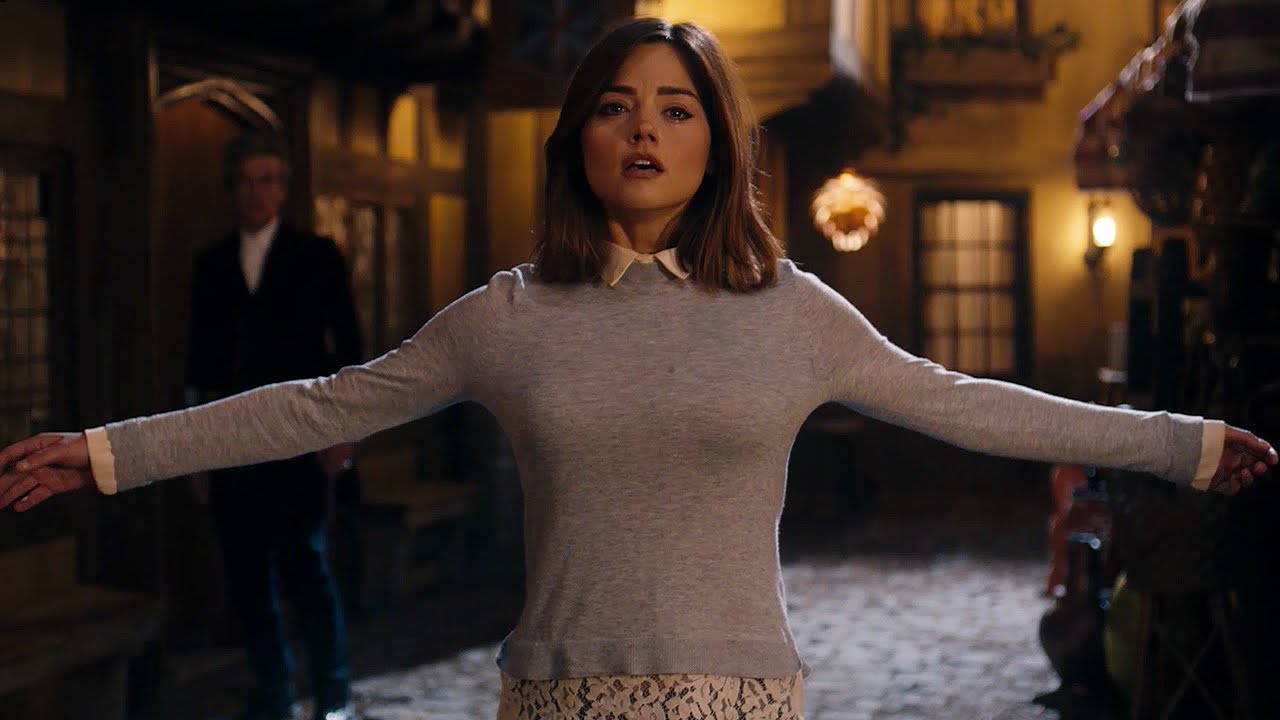
Doctor Who consistently argues that these are not the only ways for the show to write out a companion, that a companion need not be emotionally broken, married off, abandoned, or even killed. Perhaps companions are owed more than that. Clara explicitly makes this argument in “Dark Water,” after the sudden death of her lover Danny Pink. “I don’t deserve anything,” she states. “Nobody deserves anything. But I am owed better. I am owed.” The show believes her.
“The thing about Clara is she thinks the show is called Clara,” explained Moffat of his approach to the character. “She really does.” Some complained about Clara’s unearned “exceptionalism” or that she was “too good” at whatever the plot needed her to do. In reality, Clara’s personality mirrored that of the Doctor. She was arrogant, dishonest, manipulative, self-destructive, and reckless – just like him. Moffat mused, “If the Doctor were a young woman living in contemporary Britain, it’d be a bit like her.”
Doctor Who dared to challenge its audience and ask why viewers were so comfortable seeing those traits reflected in a patriarchal authority figure, as well as why they were so eager to see his female companion punished for those same attributes. In “Journey’s End,” after the companion Donna merges with the Doctor and attains all his knowledge and power, the Tenth opts to wipe her memory and abandon her on Earth against her explicit wishes, because he knows best.
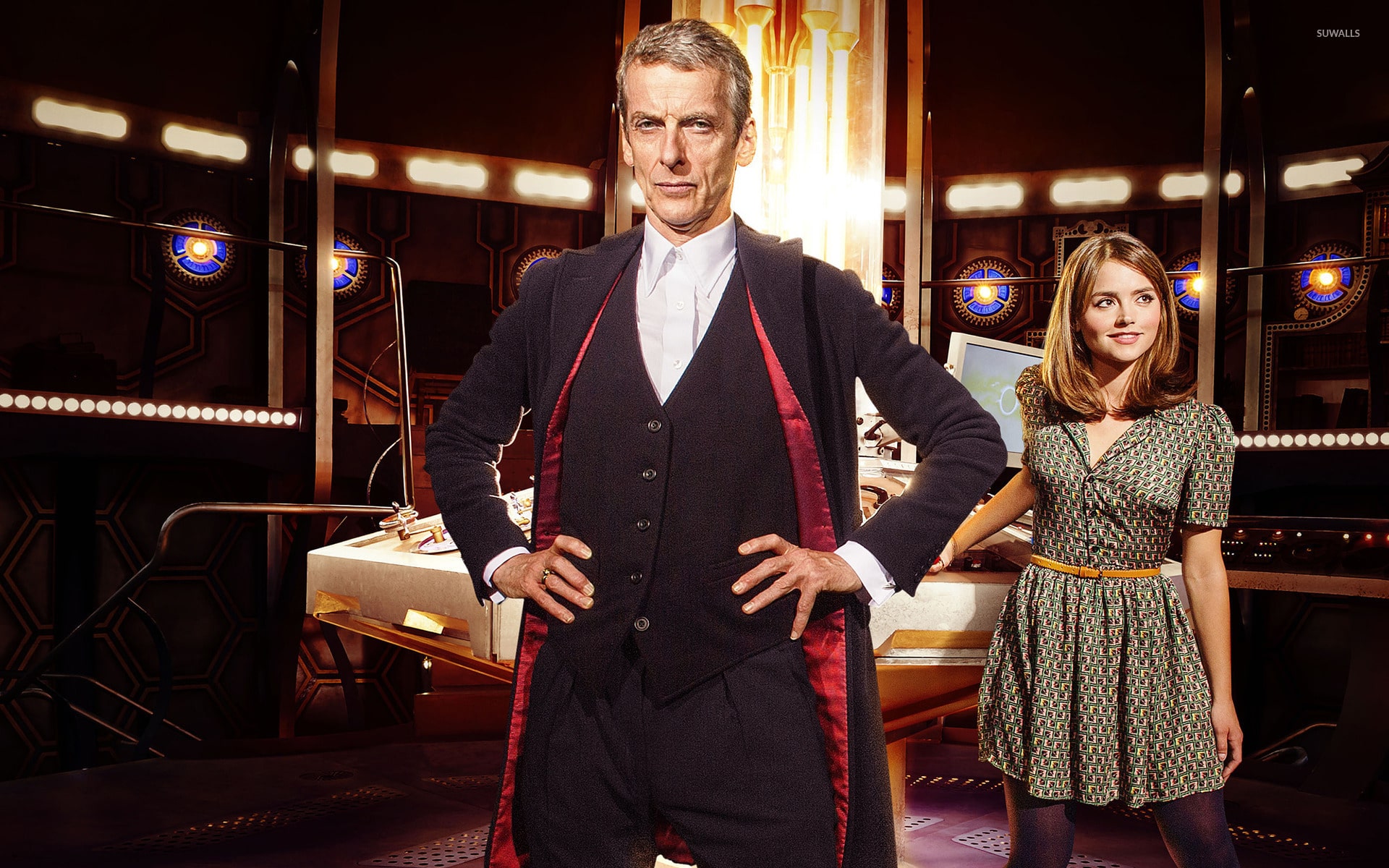
In Clara’s final episode, the Twelfth Doctor considers doing the same to Clara. The two have become dangerous to one another, each pushing the other further. However, the Doctor ultimately decides to randomize the memory wipe, to accept that his autonomy is no more important than hers. They are truly equals. “Let’s do it like we’ve done everything else,” the Doctor states. “Together.” In the end, the Doctor forgets Clara. Clara leaves him in Nevada, like he left Sarah Jane in Aberdeen.
This was a bold statement from a show that was over half a century old at this point, a feminist interrogation of the central assumptions that had underpinned decades of stories. Clara gets her own TARDIS and her own companion. She gets to adventure through the cosmos. She gets to be her own Doctor. It’s a character arc that redefined what a companion could be, radically reinventing and expanding the dynamic at the heart of Doctor Who. That’s an impressive legacy for a companion.
To quote the woman herself, “Clara Oswald for the win.”

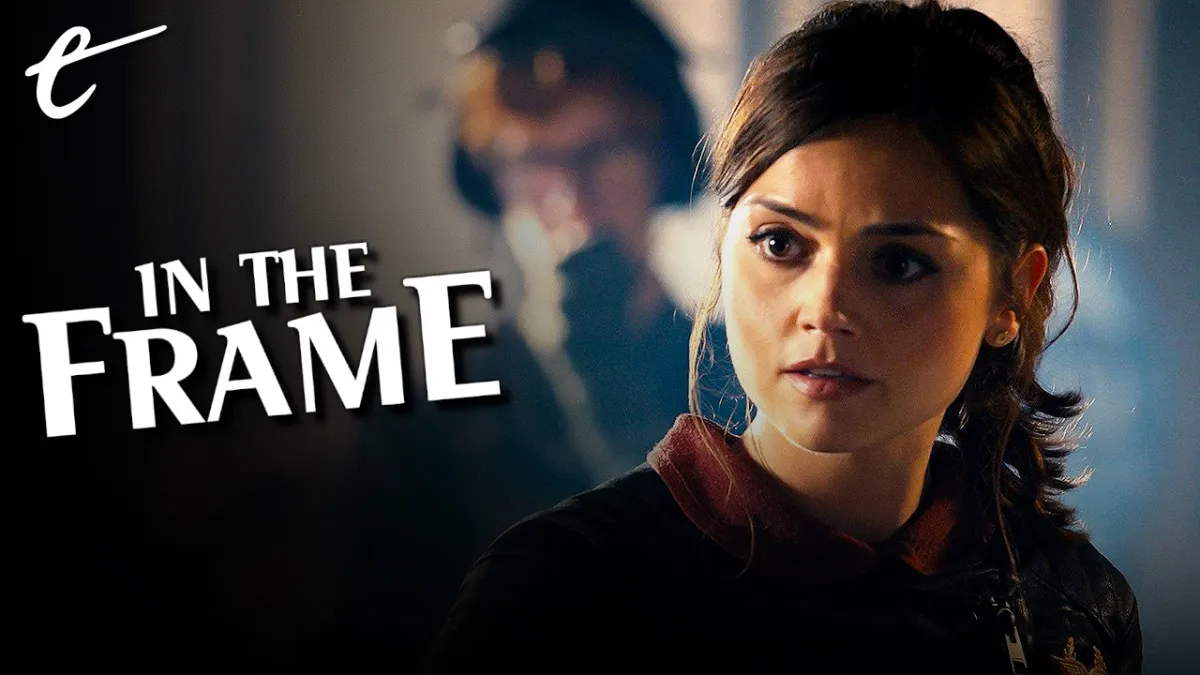




Published: Mar 25, 2022 11:00 am